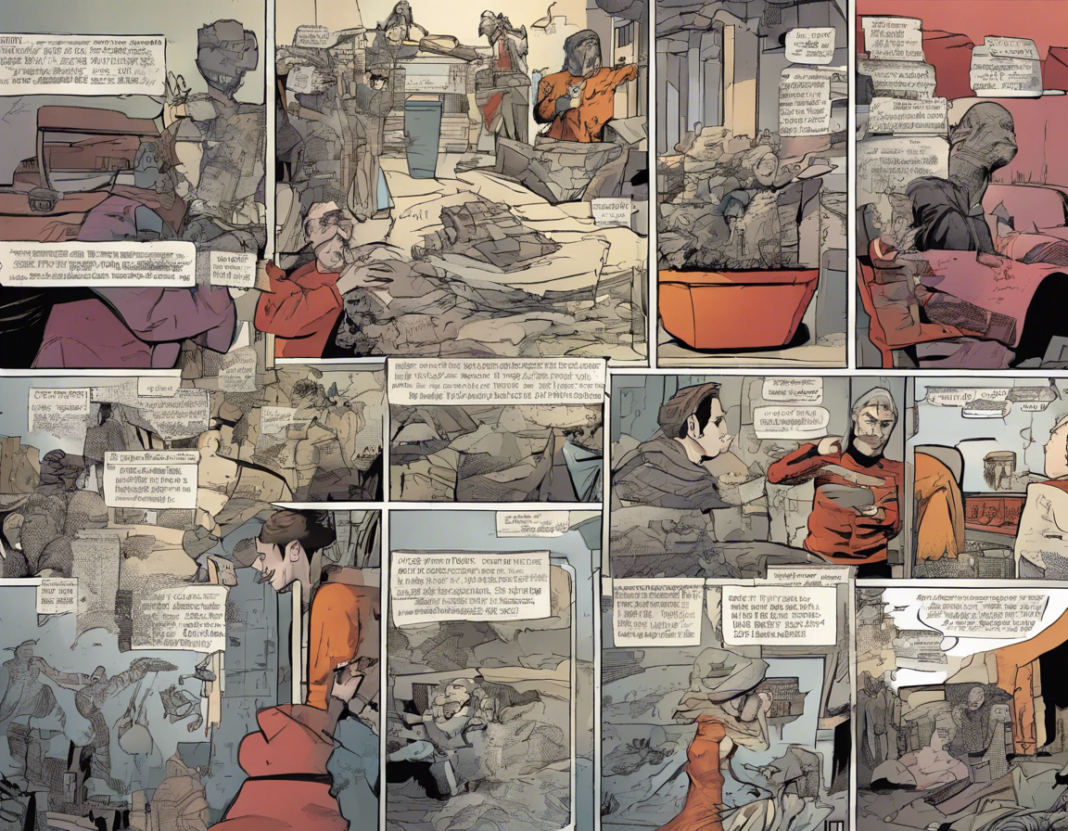Introduction
In the world of comics and graphic novels, creativity knows no bounds. However, there is a significant controversy surrounding a particular niche within this industry – incest comics. This genre has sparked heated debates among both creators and consumers, with some defending it as a form of artistic expression while others condemn it as morally reprehensible. In this article, we will delve into the intricacies of this contentious topic, exploring the history, legal implications, ethical considerations, and societal impact of incest comics.
Understanding Incest Comics
What are Incest Comics?
Incest comics, as the name suggests, are a subgenre of comic books and graphic novels that depict romantic or sexual relationships between family members. This includes siblings, parents and children, and other blood relatives. These comics often feature taboo themes and explicit content, pushing the boundaries of traditional storytelling.
History of Incest Comics
The origins of incest comics can be traced back to underground comix of the 1960s and 1970s, where independent artists explored controversial and provocative subject matter. Over the years, incestuous relationships have been portrayed in mainstream comics as well, albeit in a more subtle and subdued manner.
Legal Implications
Is it Legal to Create and Distribute Incest Comics?
The legality of incest comics varies by country and jurisdiction. In many places, such as the United States and Europe, depicting incest in a visual form is considered legal as long as it does not involve real individuals or minors. However, there are regulations regarding the distribution and sale of such content, especially when it comes to obscenity laws and child pornography statutes.
Ethical Considerations
Are Incest Comics Harmful?
One of the primary arguments against incest comics is that they can have a harmful impact on individuals, particularly those who have experienced abuse or trauma in familial relationships. Critics argue that these comics normalize and romanticize inappropriate behavior, potentially leading to desensitization and distorted views on consent and boundaries.
Freedom of Expression vs. Censorship
Proponents of incest comics often cite freedom of expression as a fundamental right that should be protected. They argue that censorship of this content sets a dangerous precedent that infringes upon artistic liberties. However, opponents argue that there are limits to freedom of expression, especially when it comes to depictions of harmful and abusive content.
Societal Impact
Impact on Perception of Taboos
The proliferation of incest comics has sparked discussions about societal taboos and cultural norms surrounding family relationships. Some argue that exploring these themes in a fictional context can prompt critical reflection and dialogue about complex issues. Others believe that it sensationalizes and trivializes serious topics.
Representation and Diversity
Incest comics often feature marginalized or unconventional relationships that are not commonly portrayed in mainstream media. Proponents argue that these stories provide representation for individuals who may not see themselves reflected in traditional narratives. However, critics contend that the fetishization of taboo relationships can perpetuate harmful stereotypes.
FAQs on Incest Comics
-
Are incest comics illegal to create or possess?
In many jurisdictions, creating and possessing incest comics is not illegal as long as they do not violate obscenity laws or feature real individuals or minors. -
Do incest comics contribute to real-life harm?
There is ongoing debate about the potential impact of incest comics on individuals, with some arguing that they can desensitize readers to inappropriate behavior. -
Are there any regulations or restrictions on selling incest comics?
The sale and distribution of incest comics may be subject to regulations regarding obscenity, child pornography, and content that is deemed harmful to minors. -
What is the appeal of incest comics for creators and consumers?
For some creators and consumers, incest comics provide a platform to explore taboo themes, challenge social norms, and delve into complex family dynamics. -
How do critics of incest comics propose addressing the controversy?
Critics of incest comics advocate for increased awareness of the potential harms, responsible content creation, and ethical considerations when depicting taboo relationships.
Conclusion
The controversy surrounding incest comics is multifaceted, touching on issues of artistic freedom, societal taboos, and ethical boundaries. As the debate continues to evolve, it is crucial for creators, consumers, and regulators to engage in thoughtful dialogue and consider the impact of this contentious genre on individuals and communities. By examining the complexities of incest comics from various perspectives, we can better understand the nuances of this divisive topic and work towards a more informed and inclusive discourse within the comic book industry.






